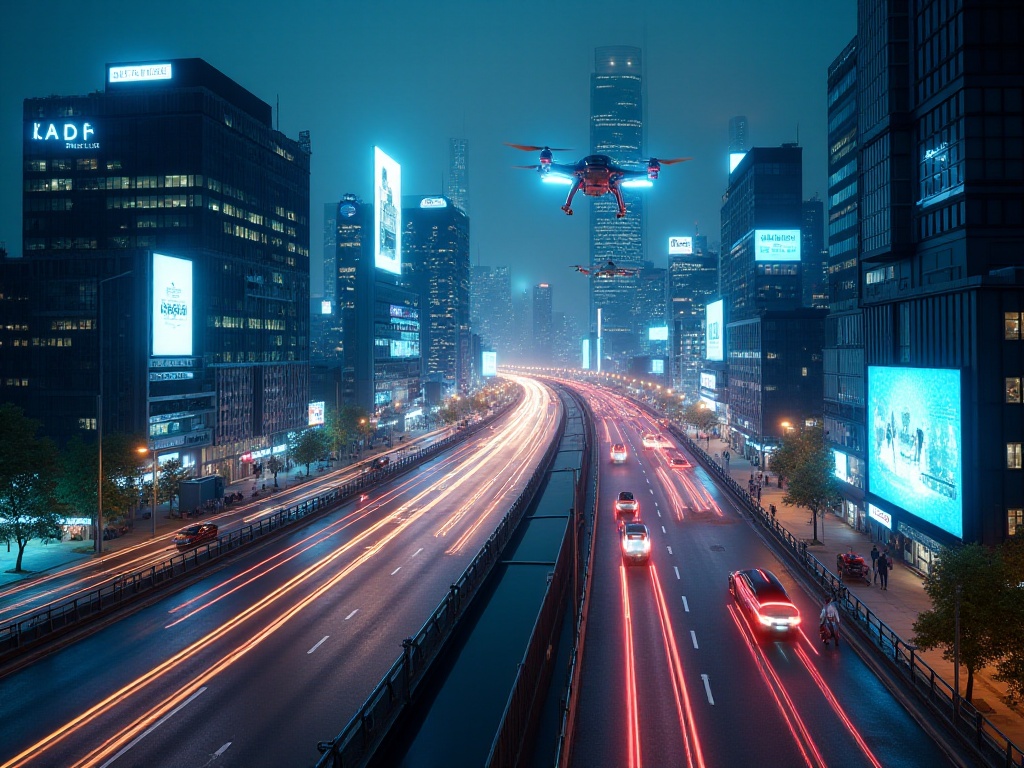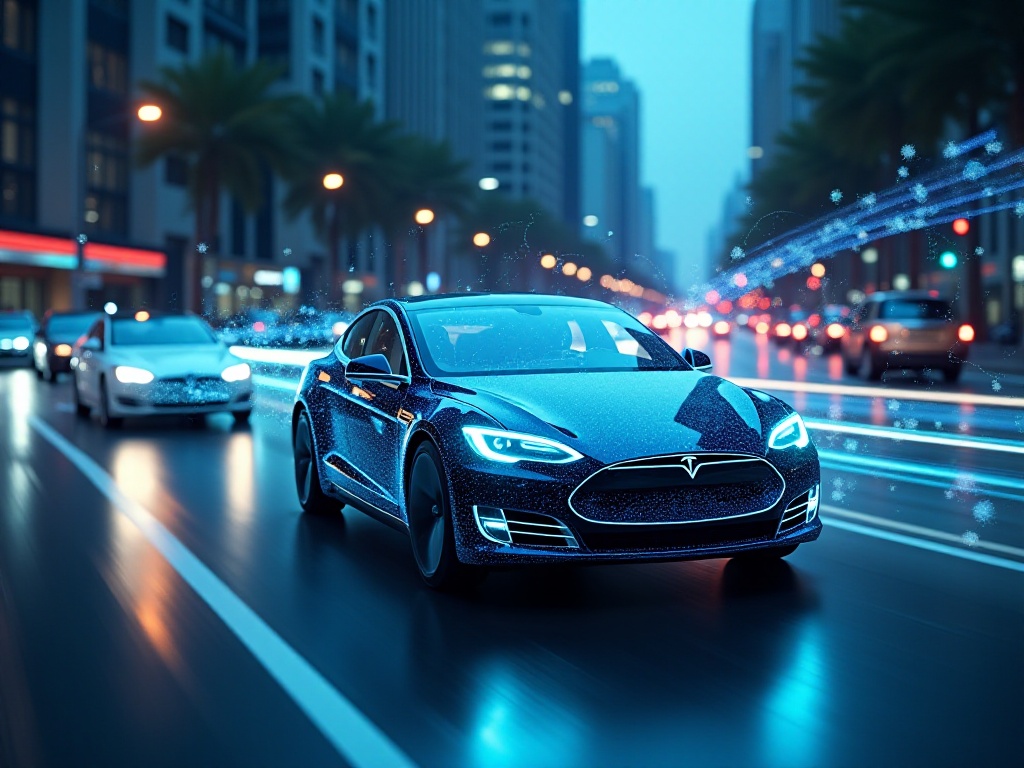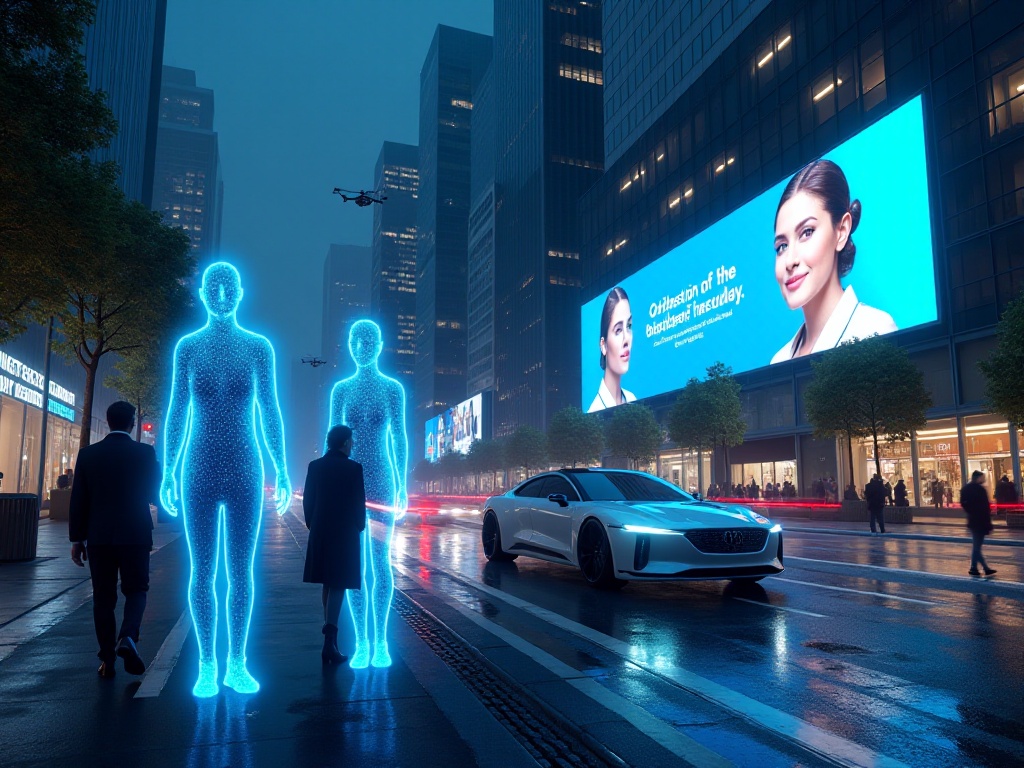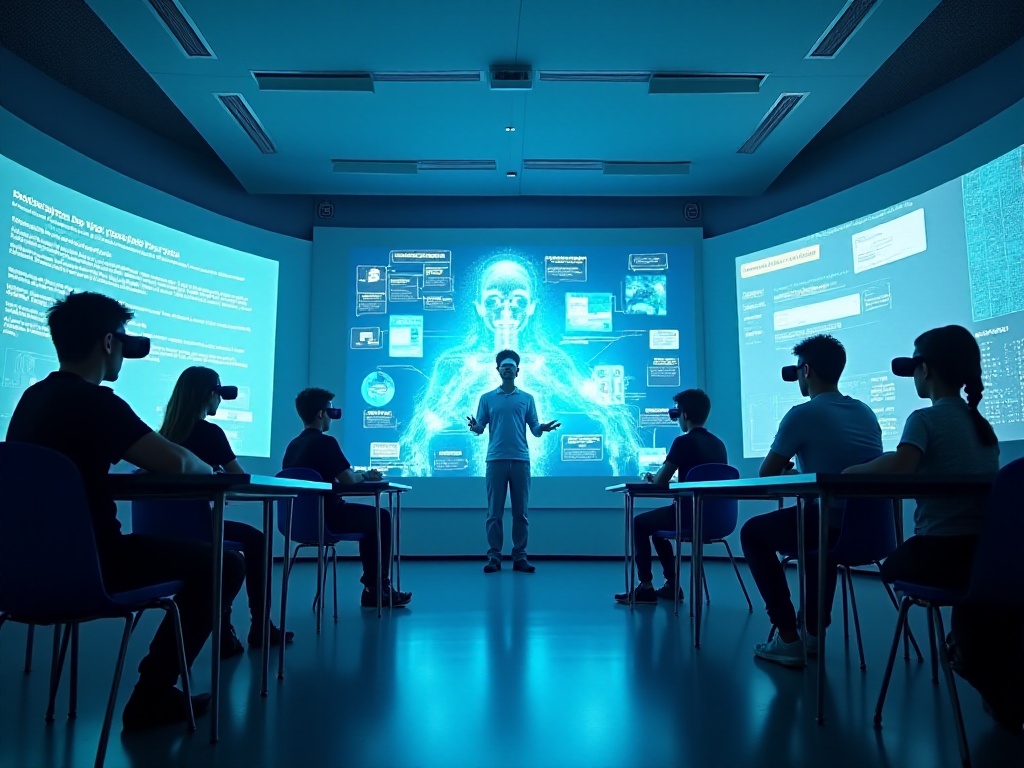Opening Chat
Recently, I've truly experienced the massive changes that artificial intelligence has brought to our travel. I remember the other day when I made plans with friends to have hot pot. In the past, I would have needed to leave way ahead of time, worried about traffic jams or not being able to get a ride. But now there's no need to worry about these issues - mobile apps can basically handle everything.
When you think about it, it's quite amazing how much technology is hidden behind these travel services we use every day. As a young person who loves trying new things, I've really become a fan of these intelligent travel methods. Today I'd like to share some of my experiences and thoughts about these AI travel technologies.
The Ride-hailing Revolution
Honestly, young people today probably can't imagine how troublesome it used to be to get a taxi. When I was little, I often saw my parents standing by the road waving desperately for a taxi, sometimes waiting for an hour without success, especially on rainy days - it was absolutely nightmarish. What's more annoying was that even if you finally got a taxi, the driver might refuse to take you because of traffic jams or if the journey was too short.
Today's ride-hailing apps are incredibly convenient. I feel getting a ride now is as simple as ordering takeout - open the app, set your location, enter your destination, and within seconds you're matched with a driver. You can even see in real-time how far away the car is. Recently, I discovered that Didi even makes recommendations based on your riding habits. For instance, when I go to the gym every Friday after work, the app actually reminds me in advance if I want to book a ride - the experience is absolutely amazing.
I specifically looked into the technical principles behind this. It turns out that Didi's AI system handles far more orders daily than we might imagine - over 10 million orders. The system analyzes dozens of variables including weather, traffic conditions, and time periods to predict when and where ride demand will peak. The accuracy of these predictions can reach 95%, which is really impressive.
Once while riding with Didi, the driver shared some inside stories with me. He said the order matching system is incredibly intelligent now - it automatically recommends the most suitable orders based on his vehicle location and travel direction. For example, after dropping off a passenger, the system immediately pushes nearby orders, so he doesn't have to drive around blindly looking for passengers like before. This has directly doubled his efficiency and increased his income.
Another particularly thoughtful feature is price estimation. I remember once when I needed to catch a flight, the system told me in advance approximately how much the ride would cost and suggested I leave 15 minutes early because it predicted traffic congestion. It turned out to be exactly right - if I hadn't left early, I might have missed my flight.
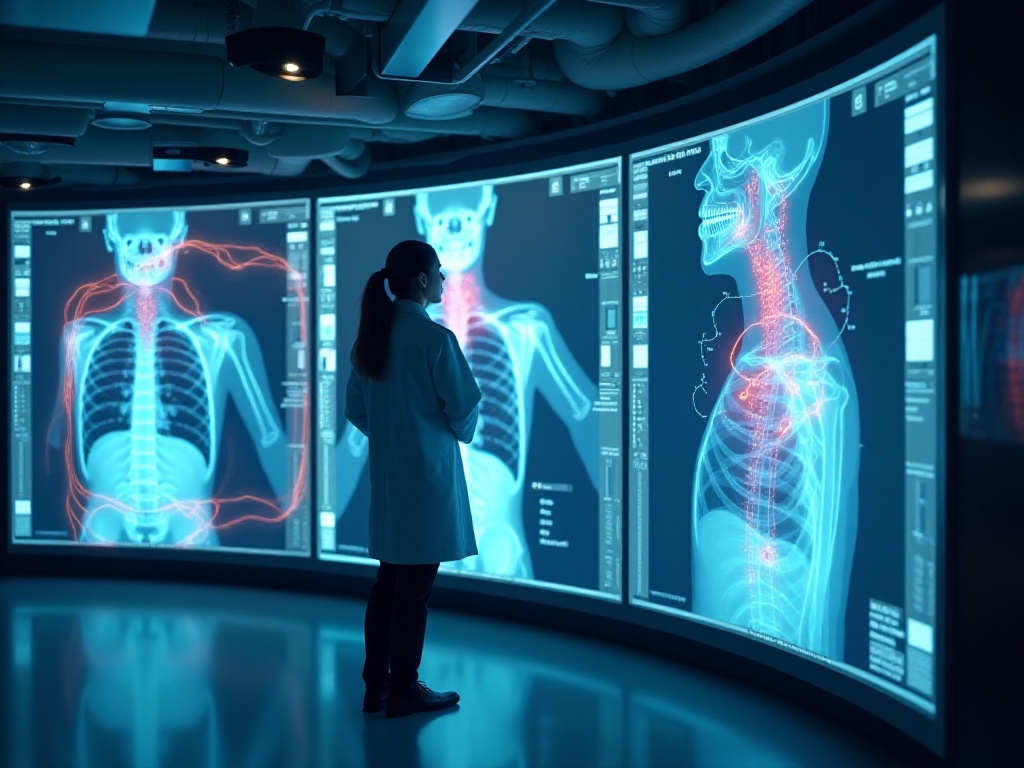
Route Planning
Speaking of navigation, this might be the AI application we interact with most daily. Now we rely on navigation for going anywhere, whether driving or walking - map apps have become our personal guides. But many people probably don't realize that modern navigation systems are far more complex than we imagine.
AutoNavi processes over 1 billion route planning requests every day - that number is really staggering. And today's navigation doesn't just tell you how to get somewhere; it helps predict traffic conditions. The system collects and analyzes various data in real-time, including traffic conditions, accidents, construction, and can even predict whether a certain road section will be congested 20 minutes later.
I've personally experienced the power of navigation systems. Last summer, my friend and I drove from Beijing to Tianjin. That day was a weekend, and AutoNavi planned a route that seemed a bit roundabout - at first I thought the system might have a bug. But my friend said to trust the AI, so we followed the navigation. Later, I saw on social media that there had been a chain collision on the main road, causing several hours of traffic jams. That's when I realized the AI system had predicted this situation and helped us avoid it in advance.
Current navigation systems also provide different suggestions based on different time periods. During morning rush hour, it might suggest taking less crowded side roads - although the distance is longer, it helps avoid congested areas. During evening commutes, it adjusts routes based on real-time traffic conditions. I feel like using navigation is like having an experienced driver who knows all road conditions giving you directions.
Besides driving navigation, walking navigation is also very intelligent. Once when I went to a shopping mall, the navigation not only told me how to get there but also suggested which exit was closer and which elevator was more convenient. When transferring at subway stations, it would even tell you which position in the train car would be more convenient for transfer - these details are really thoughtful.
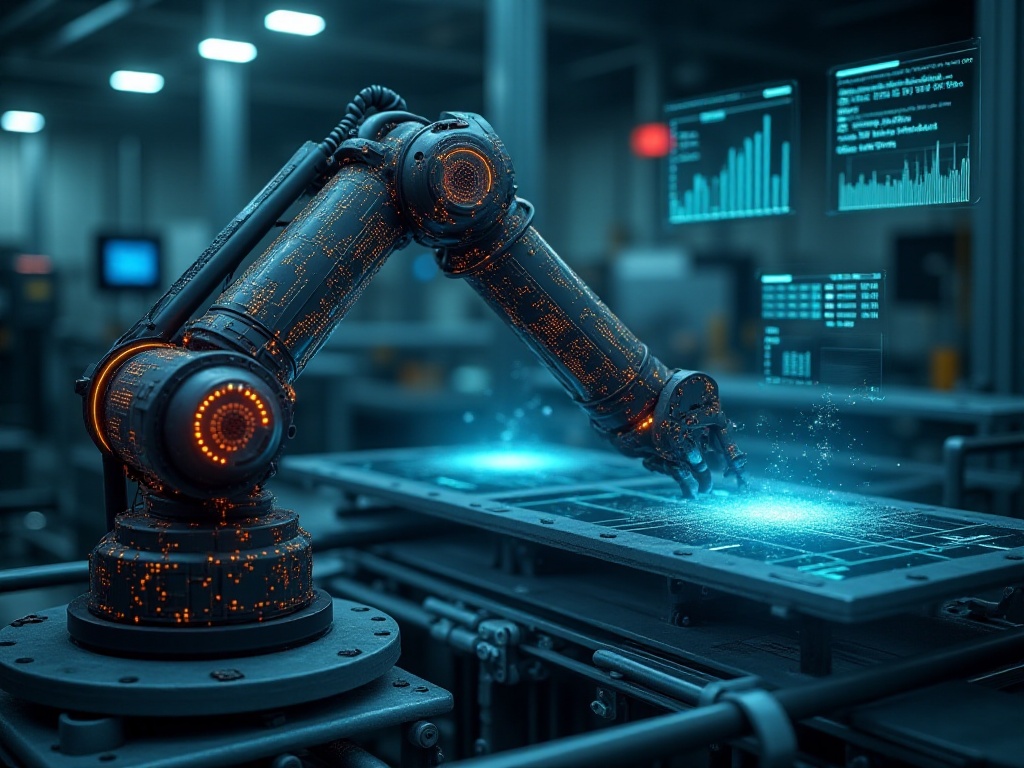
Autonomous Driving
When it comes to future transportation, autonomous driving is definitely one of the most anticipated technologies. Although fully autonomous driving hasn't become widespread yet, many auto companies have made major breakthroughs in this area. New auto manufacturers like Tesla, NIO, and XPeng are all actively advancing the development of autonomous driving technology. Statistics show that the global autonomous vehicle market is expected to reach $120 billion in 2024, which fully demonstrates the enormous potential of this technology.
Autonomous vehicles are like cars equipped with a "brain." Through various sensors like cameras, radar, and lidar, vehicles can obtain real-time information about their surroundings. The AI system immediately processes this data and makes corresponding driving decisions. Most impressive is that AI systems react far faster than humans. According to test data from Baidu's Apollo platform, their AI system's reaction time is only 0.1 seconds, while average human drivers typically take around 0.7 seconds.
I recently participated in an autonomous driving experience event and rode in a self-driving taxi - honestly, the feeling was quite unique. Although there was still a safety operator in the car, the vehicle operated fully autonomously most of the time. It automatically followed traffic rules, slowed down for pedestrians, and made smooth turns and lane changes. While it still needed human takeover in some complex situations, you could already see the huge potential of this technology.
What impressed me most was its learning ability. Data collected by each autonomous vehicle is used to improve the entire system. For instance, if one vehicle encounters a special situation on a certain road section, this experience is shared with other vehicles. This collective learning makes the entire system increasingly intelligent.
Many new cars now come equipped with some autonomous driving assistance features, such as adaptive cruise control, automatic parking, and lane keeping. Although it's not fully autonomous driving, it has already made driving more relaxed and safer. My friend recently bought a new energy vehicle, and he's absolutely in love with just the automatic parking feature - no more worrying about difficult parking situations.

Future Outlook
Honestly, while current intelligent transportation methods already impress me, this seems to be just the beginning. Future transportation scenarios might be even more sci-fi. Imagine, perhaps not too far from now, we might experience "one-stop intelligent transportation."
For example, you might just need to tell your phone "I need to go to the airport," and the AI system will automatically plan the optimal travel solution based on current time, traffic conditions, and your preferences. It might suggest taking a ride to the subway station, then taking the express line to the airport, all seamlessly connected. All ticketing and payments can be completed automatically - you just need to bring your phone.
Even cooler is that more new types of transportation might emerge. Many companies are now developing flying cars - although it sounds like science fiction, it might become reality within the next decade. Then, we might not need to deal with ground traffic jams for commuting - we could just fly there directly.
The level of intelligence will also be higher. Vehicles might be equipped with more advanced AI systems that not only drive autonomously but also adjust driving styles based on passengers' emotions. For instance, if it detects a passenger is in a bad mood, it might choose a more comfortable driving mode; if a passenger is in a hurry, it would choose faster routes while ensuring safety.
Traffic management will also become smarter. City traffic lights will automatically adjust based on real-time traffic conditions, and roads might adopt variable lane designs that automatically change direction based on morning and evening peak hours. These technologies will make city traffic more smooth.
Most importantly, future transportation methods will be more environmentally friendly. With the popularization of new energy vehicles and the maturation of autonomous driving technology, our transportation will become cleaner and more efficient. Shared mobility might become mainstream - people might not necessarily need to buy cars, just call an autonomous vehicle when needed.
These changes won't just affect how we travel, but will change the entire face of cities. Future cities might have dedicated autonomous vehicle lanes, more charging facilities, and even landing pads for flying cars. Our lifestyles will also change accordingly - for example, choice of residence might no longer be so restricted by commuting distance.
As a young person who loves technology, I'm really looking forward to these changes. Although there are still many technical challenges to solve, seeing the speed of AI technology development in recent years, I believe these wonderful visions will all become reality in the near future.
What do you think future transportation will look like? Will there be more unimaginable cutting-edge technologies? Feel free to share your thoughts in the comments. If you're particularly interested in any specific intelligent transportation application, let me know, and we can discuss it in depth.




